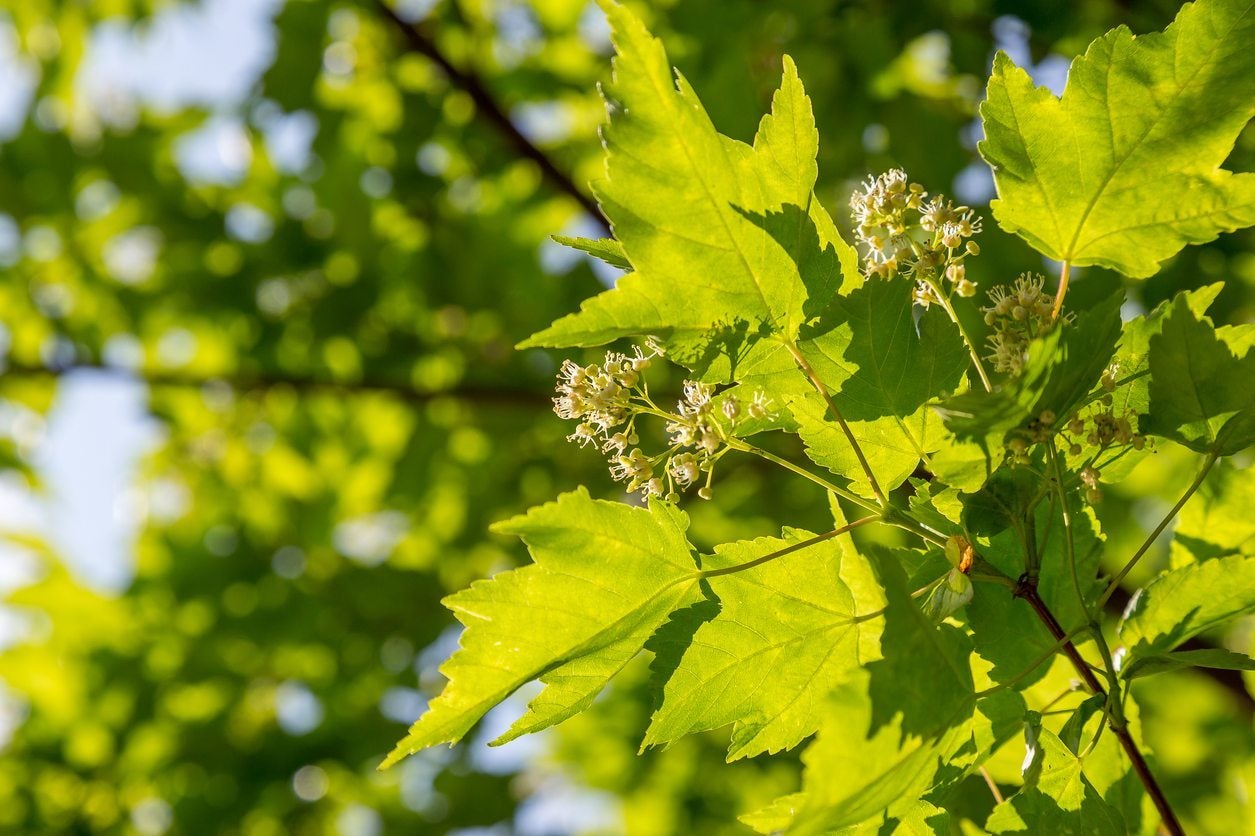Tatarian Maple Care – Learn How To Grow Tatarian Maple Trees


Tatarian maple trees grow so fast that they quickly attain their full height, which isn’t very tall. They are short trees with wide, rounded canopies, and excellent fall-color trees for small backyards. For more Tatarian maple facts and tips on how to grow Tatarian maple, read on.
Tatarian Maple Facts
Tatarian maple trees (Acer tataricum) are small trees or large shrubs native to native to western Asia. They may grow 20 feet (6 meters) tall but often spread to 25 feet (7.5 meters) or wider. Despite this short height, they shoot up fast, sometimes 2 feet (0.5 meters) per year. These trees are considered ornamentals. They produce panicles of greenish-white flowers in springtime. The fruit is also eye-catching: long, red samaras that hang on the tree for a month or so before falling. Tatarian maple trees are deciduous trees, losing their leaves in winter. During the growing season, their leaves are green, but according to Tatarian maple facts, they turn yellow and red in fall. This makes growing a Tatarian maple a great tree to get fall color in a small landscape. They are also a great investment since the trees can live 150 years.
How to Grow Tatarian Maple
If you are wondering how to grow Tatarian maple, you need to live in U.S. Department of Agriculture plant hardiness zones 3 through 8. That is where the trees thrive. When you start growing a Tatarian maple, you don’t have to be picky about soil. Almost any well-draining soil will do. You can plant them in moist or dry soil, clay, loam, or sand. They can grow happily in a wide range of acidic soils, from highly acidic to neutral. You’ll do best to site Tatarian maple trees in a location that gets full sun. They will also grow in partial shade, but not quite as well as in the direct sun.
Tatarian Maple Care
Tatarian maple care is not difficult if you site the tree appropriately. Like every other tree, this maple requires irrigation for the period after transplant but, after establishment, is quite drought-tolerant. The root system is somewhat shallow and might benefit from a layer of mulch. These trees grow and transplant easily, even without heaping too much Tatarian maple care on them. In fact, they are considered invasive in some areas, so be sure yours do not escape cultivation – and you may want to check with your local extension office to ensure it’s ok to row them in your area.
Sign up for the Gardening Know How newsletter today and receive a free copy of our e-book "How to Grow Delicious Tomatoes".

Teo Spengler is a master gardener and a docent at the San Francisco Botanical Garden, where she hosts public tours. She has studied horticulture and written about nature, trees, plants, and gardening for more than two decades, following a career as an attorney and legal writer. Her extended family includes some 30 houseplants and hundreds of outdoor plants, including 250 trees, which are her main passion. Spengler currently splits her life between San Francisco and the French Basque Country, though she was raised in Alaska, giving her experience of gardening in a range of climates.